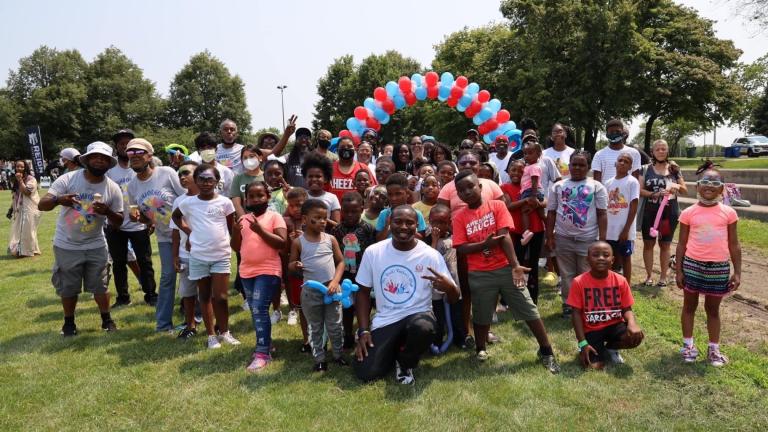Pretty much anyone who is or has been married would agree that marriage can be complicated. But married couples are increasingly looking to even more complicated arrangements by adding partners outside of marriage for emotional – and yes, romantic fulfillment – a concept known as consensual non-monogamy, or CNM.
Chicago writer Kim Brooks, who is married, made her own foray into CNM and CNM communities. She wrote about her experiences in the article “Married With Benefits” in this month’s Chicago magazine.
“I talked to people who do love the way that CNM allows them to have different kinds of relationships that fulfill different sorts of needs,” Brooks said. “I think monogamous culture has this very self-defeating notion that a romantic partner or spouse is supposed to meet all of your needs. They should be your lover, your best friend, your co-parent, your roommate, your sun and your moon. That’s a high bar that not many people can meet. Those who practice CNM seem better able to focus on what a relationship offers as opposed to what it might lack.”
Brooks says that while the people she met practicing consensual non-monogamy spanned demographic categories, managing more than one romantic relationship requires a certain kind of ideological viewpoint. “The common thread seemed to be a flexible mindset when it comes to imagining what a relationship is and how it should be conducted, a willingness to experiment, and a prioritization of communication and openness over secrecy and manipulation,” she said.
Dating websites and apps make it relatively easy to find likeminded people, but Brooks says that for those who have a serious interest in pursuing consensual non-monogamy as a lifestyle, it’s helpful to find a non-electronic community, too. “In places like Chicago, or other big cities like New York or Seattle, there’s a large enough community and enough people who are open about polyamory that many people prefer these communities to online dating. One challenge to meeting people online, I think, is that a lot of people who see ‘non-monogamous’ in a dating profile don’t know much about it. Men assume it means a woman wants casual sex. Women assume it means a man is cheating. By contrast, there’s a lot of emphasis in the meetup community on education and communication and consent.”
In her Chicago magazine article, Brooks is very open about how her journey into CNM affected her marriage. And the experience, she says, changed her thinking about what makes a successful relationship. “Before I began reporting on this topic, I carried around the deeply ingrained idea of monogamous culture that a successful relationship is one that follows a script or a set of rules,” she said. “In being able to talk to people who don’t prescribe to that notion, who in fact, think it’s rather toxic, and that a relationship can be anything the two people involved in it agree to, has opened my mind, but I think it’s also made me feel more self-compassion and empathy for others struggling in relationships, struggling to make their lives fit this structure.”
Related stories:
Why One Sociologist Says It’s Time for Black Women to Date White Men
Relationships Under Review in New Book ‘The All-or-Nothing Marriage’
More to Love: Polyamory in the Real World







